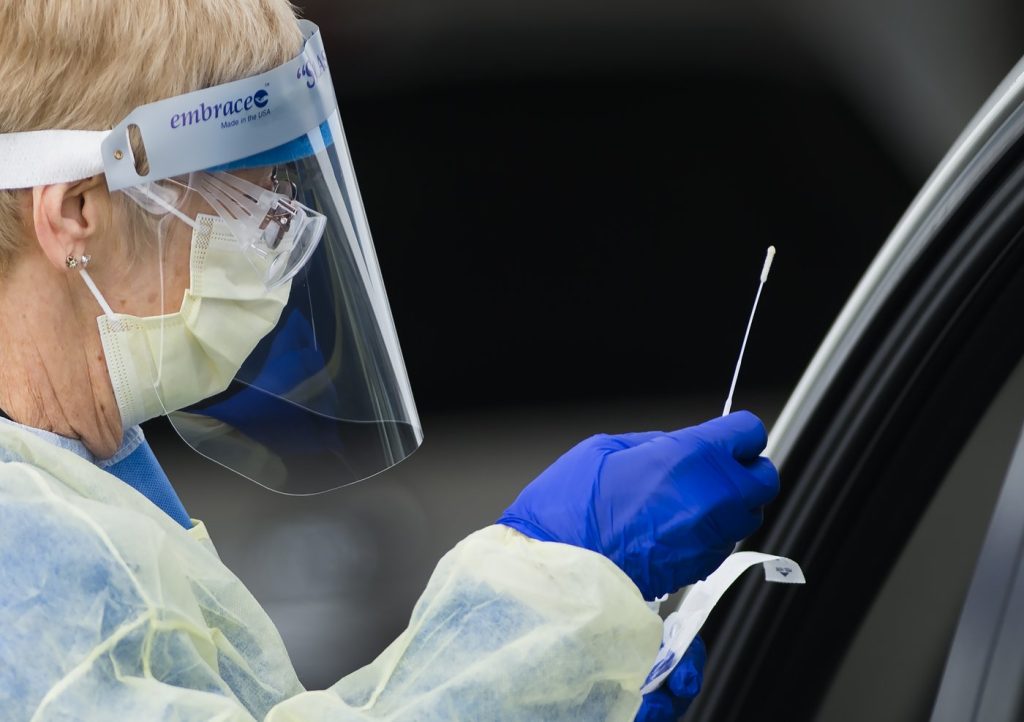Local organization raises money for psychiatric service dogs by giving back to frontline workers
Posted Feb 27, 2022 01:15:00 PM.
Partners with Paws founder Jacqueline Gori gave a “furry high-five” to Grand River Hospital staff earlier this week, with the donation of 50 copies of “I Love Labs – The Cooperslane Legacy.”
For the past two years, the organization has been helping people with psychiatric and mental health diagnoses in southern Ontario by funding, training and partnering them with service dogs.
All the proceeds from the book help to fund this process. So far, they have sold 400 books at $35 a piece — raising a total of $14,000 for training their service dogs, which typically takes about two years and $20,000.
Gori encourages people who want to help to purchase the book as a donation “to either a first-time Cooperslane family who is going to pick up their very first puppy, or to a healthcare worker.”
“So the 50 books that I donated were purchased by Partners with Paws donors, [who chose] to donate it to Grand River Hospital,” she said. “It's a really neat way of helping out two causes in one go: you're purchasing a book that goes to raise money for psychiatric service dogs, and you're encouraging a healthcare worker by saying ‘thanks,’ and they get that book.”
However, she believes the book itself can help alleviate the stress healthcare workers are feeling right now, because of the heartfelt and entertaining stories it contains.
It consists of 50 illustrated stories about Cooperslane Labradors “being silly,” capturing some of the most precious and hilarious dog moments that will make you tear up and then howl with laughter. Each book is also signed by Gori and her service dog Samson.
One of Gori’s favourites is about a dog named Tucker, whose parents wanted to teach him to ride in canoes and kayaks.
“And he wouldn’t get in the kayak. The next day, they thought, oh, you’re not going to ride in the kayak anymore, we’ll just play around in the water. And they’re in the middle of the lake [when] he saw a kayak with two random people in it, and he just decided to start swimming towards them,” she said. “These people were like, ‘what is that dog doing?’ So they helped him into the kayak. And there he was, in the strange kayak floating around on the lake.”
Gori’s own service dog, Samson, is from Coopersland Kennels, as are the dogs Partners with Paws trains. Cooperslane specializes in breeding Labrador Retrievers to “be family companions and service dogs.”
A few years ago, Gori went to show Valerie Cooper, who started Cooperslane Kennels, how Samson is trained to save her life.
Cooper is well-known in the service dog industry as she has donated entire litters to National Service Dogs and Autism Dog Services.
“I just wanted to go back and say thank you. And when I was driving away from the house, I [thought], my goodness, somebody needs to write a book about these people.”
This thought prompted Gori to travel around 5,000 kilometres across Ontario, collecting stories about the Cooperslane Labradors.
This past Tuesday, Gori presented the donation to the CEO of Grand River Hospital, Ron Gagnon, and the head of the paediatric psychiatric department. She wanted to choose mental health workers for the donation specifically, to say thank you for the life-saving care they have given her and others in the past.
“I wanted to say thank you for making a difference in my life, and I wanted to point out to them, because of their dedication, they not only saved my life, but they saved the life of the five people I’ve been able to help through my charity, and however many more people in the future,” she said.
Since launching, Partners with Paws has raised around $60,000, and trained and placed five service dogs; they also have another two placements “in the works, and hopefully another three or four later in the year.”
However, Gori notes that while the organization is continuing to grow, it can’t possibly grow fast enough to address the increasing demand for psychiatric service dogs.
“We're overrun because of COVID. I'm getting people calling up almost every day, saying they've just been diagnosed with a mental health condition and they need help. So as fast as we are growing, the need is growing faster,” she said.
For anyone who wants to help, Gori encourages people to purchase the book as a donation for GRH or another hospital.








